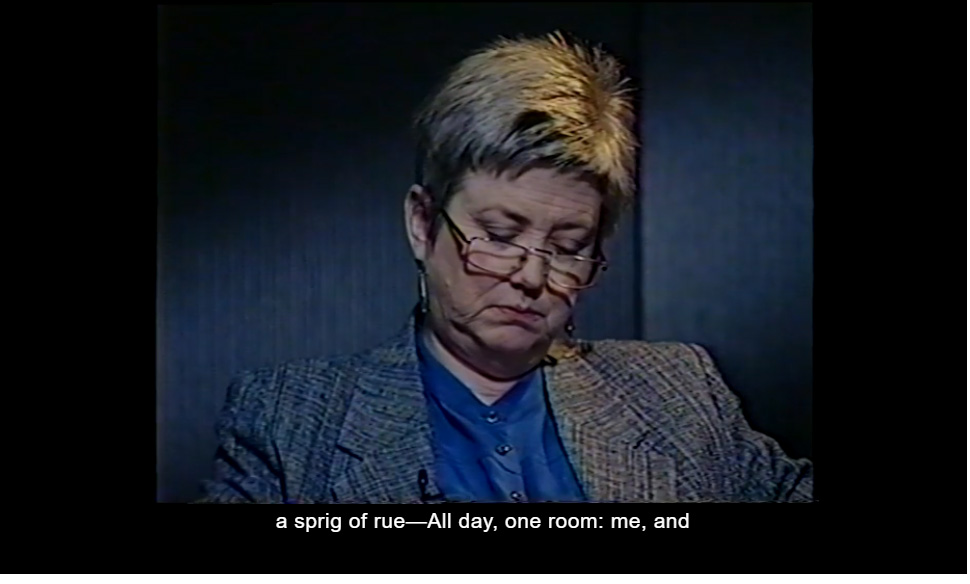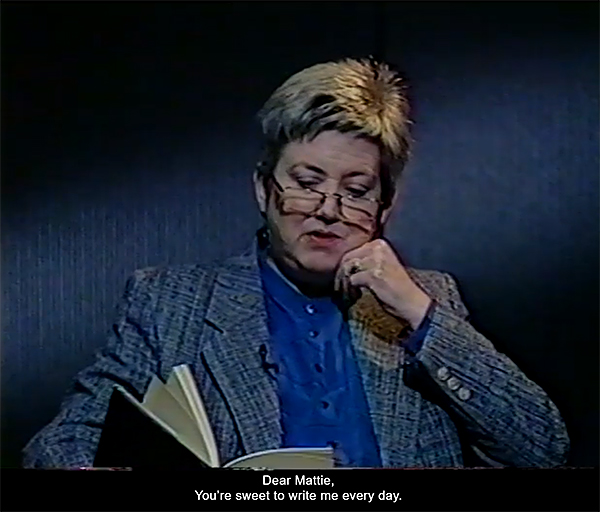Searching for Captioning Best Practice—Poetry
I am looking for guidance for online literary publishers in captioning poetry for audio and video presentations. We want to get this right and/or to help develop best practices. Questions of line and stanza break come in to play with poetry, as does where one poem in a series ends and another begins, say, if a writer is reading from untitled works (as was the case in our first attempt at captioning). What follows is a description of attempts, problems, and questions coming out of our attempt, and failure, to get this right using Kaltura, the one tool currently available to us. It is a question of control and the ease with which we can exercise control (and train interns to do so) with the available tool.
What is described below is an attempt to capture what we observed under deadline and duress, and hopefully I will find a ready solution, but in the meantime, I want to go ahead and blog a version of the notes and observations lest anyone else have an obvious solution or can direct us to a captioning tool that makes some of this work less difficult than in Kaltura.
—M.A. Keller
I want to begin by giving the whole of two poems as they would appear on the page, one poem per page, and that were read back to back by Ellen Bryant Voigt in a video Blackbird published in v18n1. I will then follow with how the first of these texts appears in the captioning, and how the em dash, at the end of the first poem, makes it appear as if it, and the poem that follows, are a single unit. (FYI, we submitted a mechanical caption request to Kalturea and then corrected the text afterwards.) For context, the poems come from Voigt’s book Kyrie, a sonnet series of voices speaking out of the 1918 influenza pandemic. The first poem example here in the voice of a young speaker moving into delerium; the second in the voice of a teacher.
My brothers had it, my sister parceled out
among the relatives. I had it exiled
in the attic room. Each afternoon
Grandfather came to the top stair, said
“How’s my chickadee,” and left me sweet
cream still in the crank. I couldn’t eat it
but I hugged the sweaty bucket, I put
the chilled metal paddle against my tongue,
I swam in the quarry, into a nest of ropes,
they wrapped my chest, they kissed the soles of my feet
but not with kisses. Another time: a man
stooped in the open door with her packed valise,
my mother smoothing on eight button gloves,
handing me a tooth, sprig of rue—
All day, one room: me, and the cherubim
with their wet kisses. Without quarantines,
who knew what was happening at home—
was someone put to bed, had someone died?
The paper said how dangerous, they coughed
and snuffed in their double desks, facing me—
they sneezed and spit on books we passed around
and on the boots I tied, retied, barely
out of school myself, Price at the front—
they smeared their lunch, they had no handkerchiefs,
no fresh water to wash my hands—when the youngest
started to cry, flushed and scared,
I just couldn’t touch her, I let her cry.
Their teacher, and I let them cry.
Although these are two separate poems, and although there is a twelve second gap of silence between the ending word “rue” and the beginning phrase, “All day,” of the next poem in the video, Kaltura’s mechanical caption placed “rue—” ending the one poem on the same caption display as part of the first line of the next poem.

In another attempt, I replaced, though incorrectly quoting the poem, the em dash with a period after “rue” Then we got this, which is a different problem

Individuation of poems aside, we first considered indicating line breaks and stanza breaks with single and double slashes respectively, as per print convention in quoted text, but after I tried this for the entire video, I found several significant problems illustrated in the following notes and screen captures from the beginning of the reading, quoting the following lines (only part of the poem displayed below).
Dear Mattie, You’re sweet to write me every day.
The train was not so bad, I found a seat,
watched the landscape flatten until dark . . .
- Kaltura did not retain a slash on the same display screen by default at the end of the line following “every day” but confusingly began the next caption screen with the slash.


2. When I cut down the sound and just read the captions, the slashes too often read as the italicized capital letter “I,” as in the example above, throwing the text into confusion.
3. Kaltura’s captions are not left bound, so we get both Kaltura-created caption display breaks and centered text as in
Dear Mattie,
You’re sweet to write to me everyday.
Given the overly common problem of poems being amateurishly reset on a center default, this looks, to a copyeditor/typesetter/pagebuilder, naively deliberate and incorrect, and suggests wrongly that line breaks are being applied in the caption display.
So our questions:
- Can we readily display one line of poetry per caption screen (even if it wraps to two caption lines in the caption display space.) Even if we don’t really intend to overtly signal line or stanza breaks (as with slashes) working with the line as a unit makes more sense in the captioning than the default of Kaltura breaking captions based on punctuation, especially a poem may be lacking punctuation, or using it in an atypical fashion, such as an em dash at the end of a poem instead of end stop punctuation.
- If we opt for / and // for line and stanza, can we exercise control over their placement on the caption display.
- In either case, how can we clearly signal in the caption display the end of one text, and the beginning of another, especially in untitled sequences.
- Can we easily eliminate the center default?
